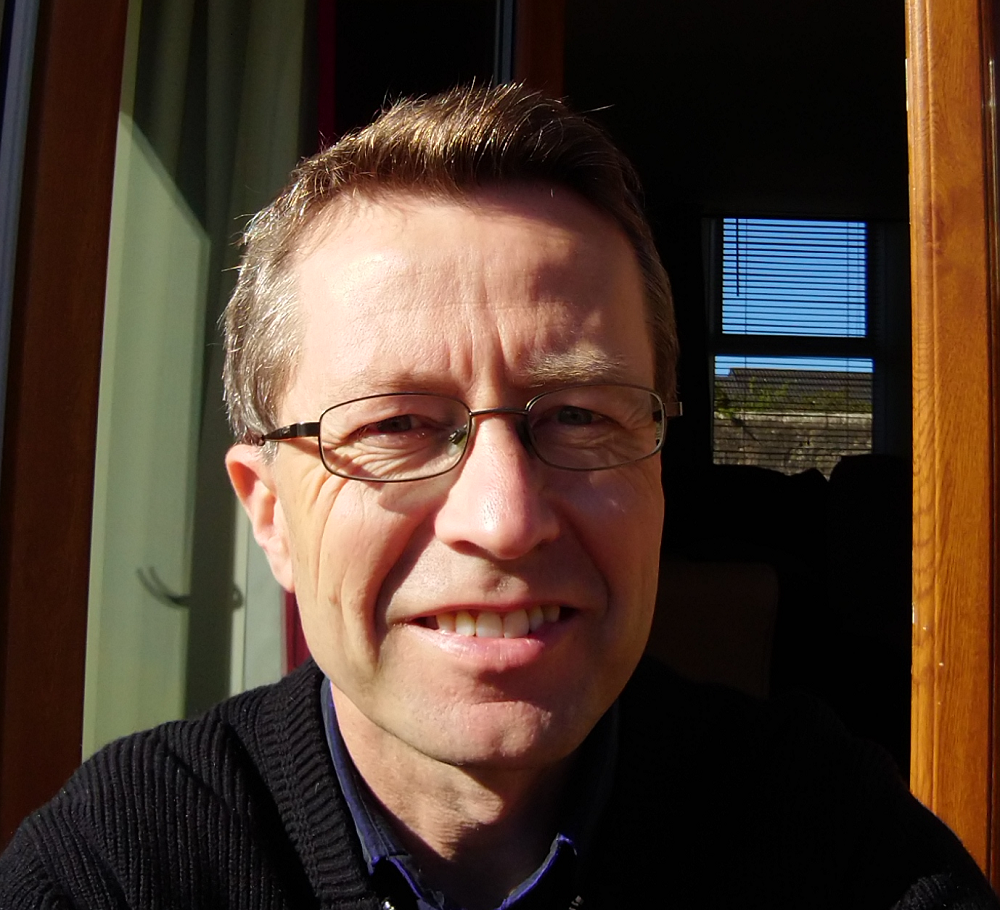Popular historian recognised with university title
The University of the Highlands and Islands has awarded Dr David Worthington the title of Professor of History, for his remarkable research, teaching and exceptional leadership qualities.
Since becoming the Head of the Centre of History in 2011, Professor Worthington, who grew up in Forres, has led a high-performing research and teaching team and shown commitment to ensuring the curriculum portfolio is current and research-led.
The nationally and internationally respected centre, which is physically located in Dornoch, has been using online teaching as part of a blended learning strategy for 13 years, attracting an increasing number of students to study with them. David has taught on over 25 history modules and has ambitions to grow this flexible teaching approach bringing education directly into local communities.
Speaking about his award, Professor Worthington said:
“I am proud to receive the award and I also see it as a chance to highlight the Centre for History, as it grows its role in, for example, the field of public history in Scotland.
"Public history involves university-based historians working closely with the broader world of people and organisations out there who engage with the past, and all those who present history and heritage to a wide audience.
“History is a vital and accessible subject, and we need to work together with, and alongside, all communities for whom it is important. In the current COVID-19 situation this is more crucial than ever as we look to history to inform the present and the future.”
His pioneering approach has led the centre to work more with the public, and his passion to inspire creative collaborative projects has informed his recent published works. These include exploring the cultural memory of Scottish emigrants in late medieval and early-modern Poland, coastal history, and the arrival of sugar in the Highlands and Islands. With a gift for public speaking, he is often invited to take part in talks and keynote lectures at conferences.
Professor Crichton Lang, Interim Principal and Vice-Chancellor at the University of the Highlands and Islands said:
“David is not only highly skilled in keeping the history curriculum in step with the present, he makes it accessible to the public.
“His participation in the National Museums Scotland event ‘A conversation with Donnie Munro’ last summer was exceptional. He skilfully took a 200 strong audience on a journey to explore the interaction and influence of history of the Highlands and Islands on the music of Donnie Munro and land use today. This is yet further evidence of his world-leading quality in the field of history. He stimulates and provokes new thinking amongst academic colleagues, students, and the public, alike. He is able to present on the societal benefits from history, to many people, in a way that they can relate to and enjoy.
“I am delighted the university has recognised his achievements with this academic title award”
Professor Jim Hunter, Emeritus Professor of History at the University of the Highlands and Islands added his delight in this issue of this award:
“When, in 2005, I became the first – and then the only – member of staff at the university’s Centre for History, I’d not have dared to imagine that the centre might become so successful.
“Many people have contributed greatly to this success. But David’s leadership skills have been absolutely critical to what’s been achieved. He has brought together a great team who are doing a tremendous job.”
Professor Worthington also chairs the advisory group involving the University of the Highlands and Islands and High Life Highland to support the ‘Inverness Castle Project’, which has been set up to contribute to the transforming of Inverness Castle into a major visitor attraction by 2024. Through ground-breaking research, he and Centre for History colleagues have played a part in inspiring the ‘Spirit of the Highlands’ concept, which is now central to the project.
